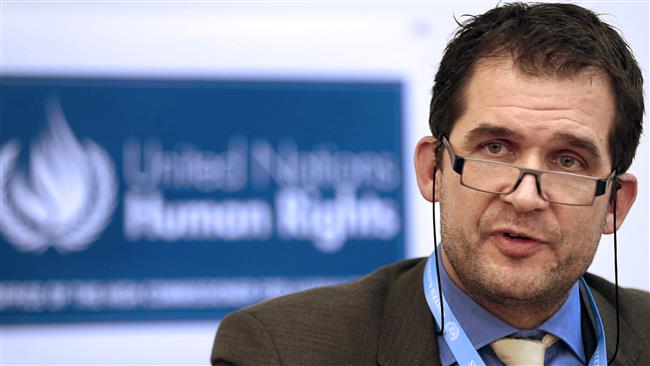
RNA - "If the new administration were to revive the use of torture, ... the consequences around the world would be catastrophic," Nils Melzer, the UN special rapporteur on torture, said in a statement on Monday.
“Without any doubt, waterboarding amounts to torture,” Melzer said, adding that a US revival of torture would encourage more countries to "get back into the torture business."
“I urgently appeal to President Trump to carefully consider not only US legal obligations, doctrine and tradition, but also the consolidated legal and moral views of the entire international community before allowing the re-introduction of methods or interrogation that are more closely associated with barbarism than with civilization," he said.
Trump voices support for torture, waterboarding
He pointed out that torture as an interrogation technique is "an ultimate disgrace for all of humanity" and will only "produce false confessions and unreliable or misleading information."
"If you are looking for military advantages in war, you can argue that chemical weapons 'work', or terrorism 'works' as well," he warned.
Trump says he is considering reinstating the use of torture, including the banned interrogation technique of waterboarding against terrorist suspects.
During an interview with ABC News on Wednesday at the White House, Trump said he thought torture “absolutely” works.
“I have spoken as recently as 24 hours ago with people at the highest level of intelligence, and I asked them the question ‘Does it work? Does torture work?’ And the answer was ‘Yes, absolutely,’” the new president said.
Waterboarding, which mimics the sensation of drowning, was first allowed during former US president George W. Bush’s administration for terror suspects captured after the September 11, 2001 attacks.
The brutal practice was finally banned by the Bush administration in 2006. The US Senate also voted to ban it in 2015.
Trump said waterboarding is useful against Daesh (ISIL) terrorists who are “chopping off the heads of our people and other people.”
During his presidential campaign, Trump pledged to bring back the use of waterboarding and other torture techniques.
847/940